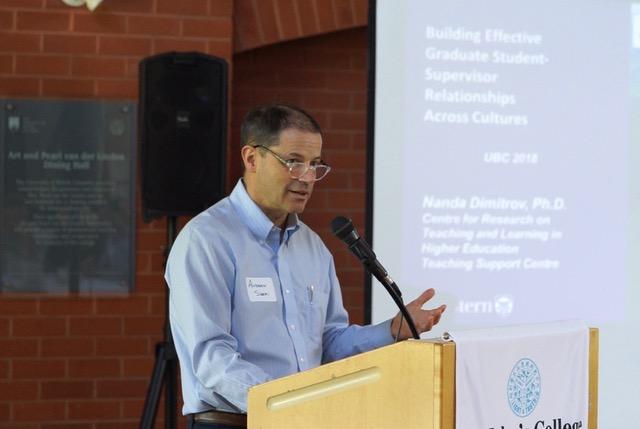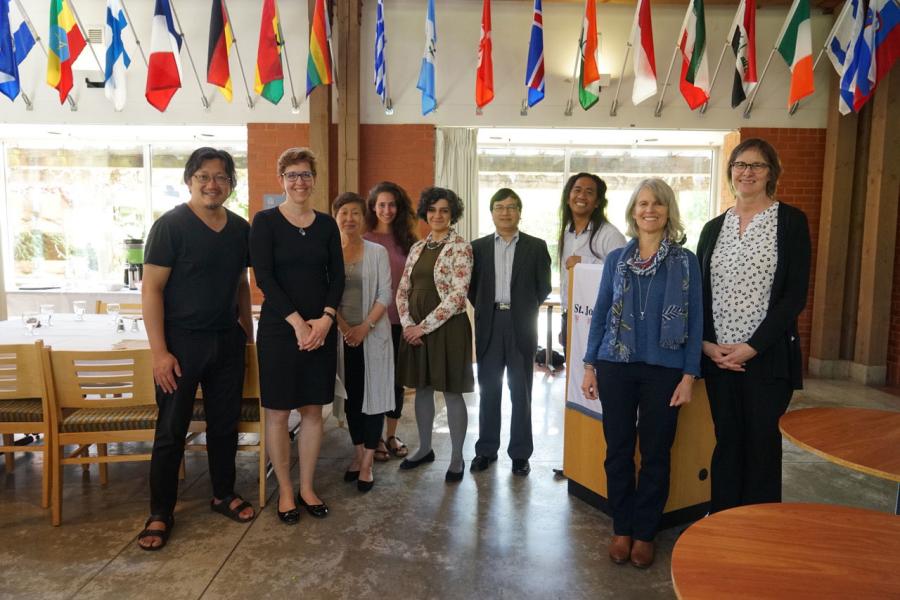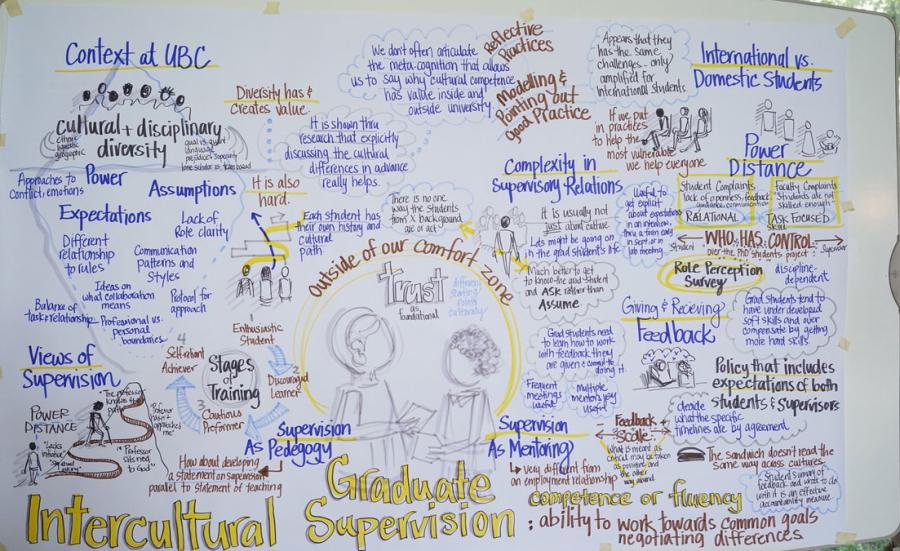On May 10, 2018, approximately 65 UBC faculty, staff and graduate students came together for a half-day symposium to explore the role of intercultural difference on an increasingly global and diverse campus.
This symposium was the culminating event of a cross-campus initiative funded by the Equity Office to explore the role of intercultural understanding in the graduate student-supervisor relationship.
35 per cent of UBC Vancouver’s graduate student population is international, and diversity within that group and among other graduate students, faculty and staff continues to grow. This growth poses many benefits as well as complex challenges to the graduate supervisory relationship, for both students and supervisors.
The symposium began with a welcome to the space by Henry Yu, Principal of St John’s College. Professor Yu highlighted the international community of graduate students who reside there and engage in intercultural communications every day.
This welcome was followed by opening remarks by Provost Andrew Szeri who spoke about the importance of the symposium topic and our respective responsibilities as students, faculty and staff to build awareness and capacity to interact with each other in ways that respect and celebrate our diversity. He emphasized the opportunities here at UBC:
"In our lives as faculty members we have a chance to interact with many students from different cultures. All of this diversity, while it provides opportunity and rewards, also presents possibility for challenges and conflict. And that’s really what you’re here today to address - both sides of that coin".
"I don’t think intercultural fluency is a matter only for graduate students … because they come from different cultures than what they find here in Canada – I think it’s also a factor of our faculty members. If you look back in the past 5 years in the Faculties of Arts and of Science, two very large faculties here, about 50% of the people who have joined the faculty in those two faculties come from outside of Canada – so there’s a lot of diversity among faculty as well."
Dr. Nanda Dimitrov of Western University, the key note speaker, focused on the different assumptions students and faculty hold about the nature of the supervisor/mentee roles, on expectations for level of initiative or independence, and on the use of various approaches to resolving conflicts and providing feedback.
Drawing on case studies and recent research on cross-cultural supervision, attendees were invited to work together to identify strategies for responding to challenging supervision scenarios, navigate cultural differences in communication and feedback styles, and explore ways to create a culture of mentorship that allows students and faculty to succeed in a global academic and professional environment.
Dr. Dimitrov’s presentation was followed by a panel of graduate students who shared their experiences navigating cross-cultural supervisory relationships at UBC. Dr. Aftab Erfan then facilitated small group discussions around various challenges and opportunities at UBC related to culture and graduate supervision that were identified by attendees.
The symposium closed with a sharing of feedback and audience dialogue. Susan Porter, Dean of the Faculty of Graduate & Postdoctoral Studies, delivered closing remarks emphasizing the need to "not only deepen but to trouble our understanding," and she encouraged all of us to disrupt our assumptions about norms and ways of being that we might think as being universal or specifically "Canadian".
Feedback from the symposium and worksheets from participants’ small group discussions informed the development of key recommendations including: capacity building of staff to support the graduate student experience, including intercultural communication awareness in the mentoring of new faculty, and addressing the power differential between students and supervisors through conflict theatre.
Recommendations have been made to the University for ways to move forward on these key areas and over the coming year. Graduate and Postdoctoral Studies and the Office of the Ombudsperson for Students will work with partners across campus to review and address these and other potential strategies to support intercultural fluency in graduate supervisory relationships.
* Exploring Graduate Supervisory Excellence on a Global Campus was organized by a planning committee with representatives from Graduate and Postdoctoral Studies, the Office of the Ombudsperson for Students, the Equity and Inclusion Office, International Student Development, Health Promotion and Education, and the Graduate Student Society. This project was generously supported by the Equity Enhancement Fund, the Teaching and Learning Enhancement Fund, and St John’s College.
See also: The Western Guide to Mentoring across Cultures and a related article on Intercultural Competence.


